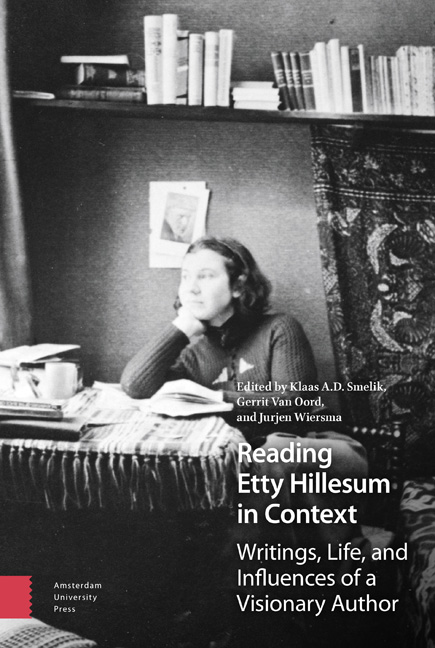7 - The Departure: A Reconstruction of the Unexpected Deportation of the Hillesum Family From Camp Westerbork on Tuesday, 7 September 1943
Published online by Cambridge University Press: 06 January 2021
Summary
Abstract
Etty Hillesum was deported to Auschwitz along with her family on 7 September 1943. Hillesum herself described the deportation order as “unexpected.” Throwing a light on that summer before the departure in September shows that there was more to it, and researchers may have to re-examine Hillesum's personal account of what happened during her last days in Camp Westerbork. This article aims at formulating an answer to the question of just how unexpected the family's departure really was. It analyzes the available historical record to get a clearer view of the decision making process and of the people who were involved in promulgating the order dispatched on Monday morning, 6 September from the Nazi headquarters in The Hague.
Keywords: Camp Westerbork, Philip Mechanicus, Benno Stokvis, Gertrud Slottke, Sperre, Etty Hillesum
On several dates in the diary he kept during his internment in Camp Westerbork, Philip Mechanicus writes about the Hillesum family. The diary, posthumously published as a book titled, in Dutch, In Dépôt, is well known for its remarkable account of life in the transit camp. Still, without knowing the general outlines of the camp's history, it is hard to understand the events he describes. The same is true for his entries on the Hillesums. A careful comparison of Mechanicus’ text to the letters Etty Hillesum wrote and sent from the camp in the summer of 1943, as well as to other documents, yields a significant amount of information on what happened to the Hillesum family during the three months before their deportation.
In this contribution, I take a closer look at the last of the eight diary entries in which Philip Mechanicus is referring to the Hillesums. It is the last mention because they were “unexpectedly” ordered to board the train that left on Tuesday, 7 September 1943 at eleven o’clock in the morning. It was the 72nd outgoing transport headed for Eastern Europe and it carried members of the Hillesum family to Auschwitz-Birkenau: father Louis Hillesum, mother Riva Hillesum-Bernstein, the youngest son Mischa, and Etty Hillesum.
The other son, Jaap Hillesum, was still in Amsterdam when his family left Westerbork but would be interned in the camp by the end of September 1943. Jaap remained in the camp until 15 February 1944 when he was deported to the concentration camp Bergen-Belsen in the north of Germany.
- Type
- Chapter
- Information
- Reading Etty Hillesum in ContextWritings, Life, and Influences of a Visionary Author, pp. 157 - 180Publisher: Amsterdam University PressPrint publication year: 2018



